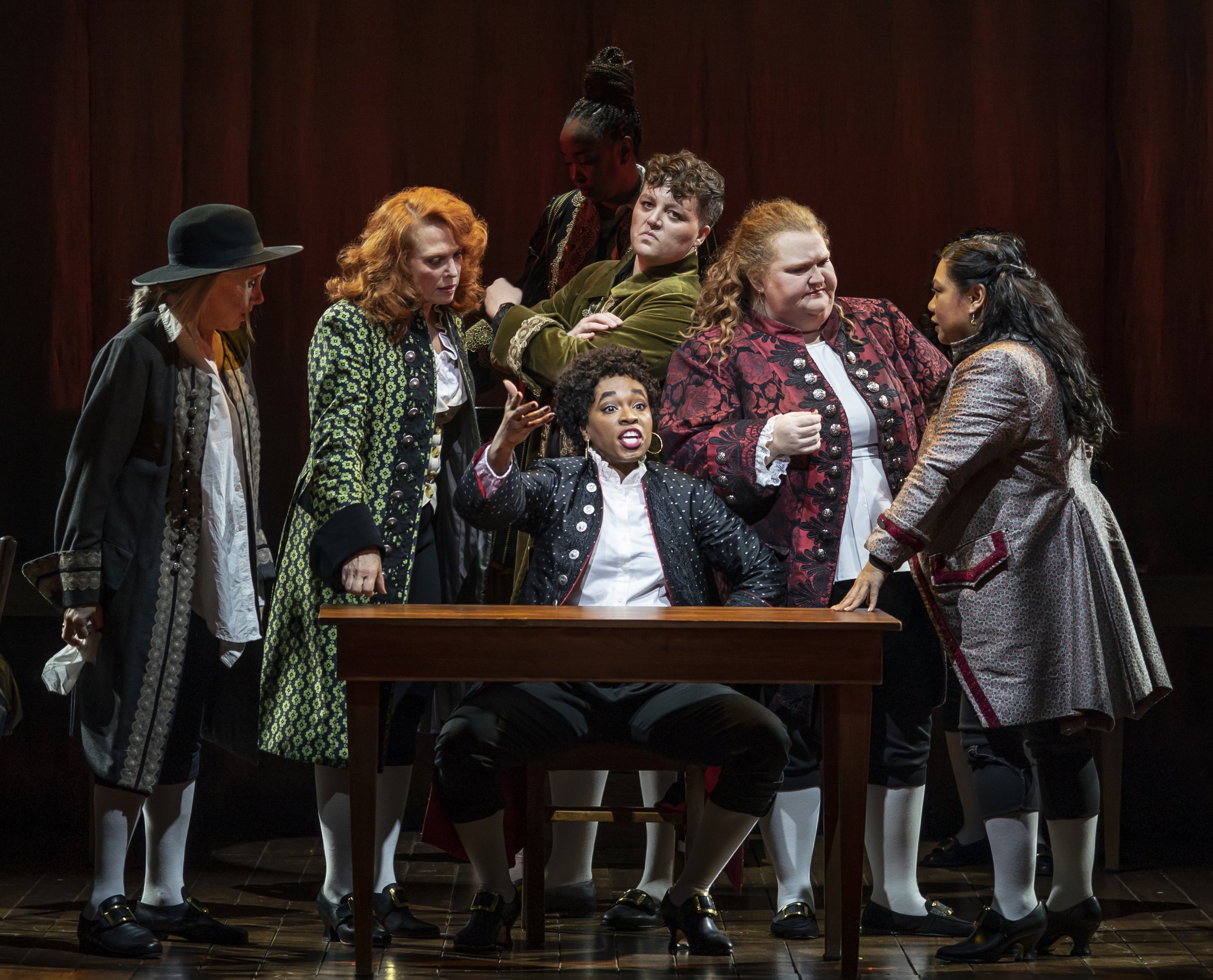“1776” Tries and Fails to Be All Things to All People
Photo by Joan Marcus.
The opinions reflected in this OpEd are those of the author and do not necessarily reflect the opinions of staff, faculty and students of The King's College.
“1776,” a self-described “revolutionary” revival that attempts to portray both the good and the bad ideals that informed our nation’s founding, opened Oct. 6 at the American Airlines Theatre. The musical tells the story of the Continental Congress in the summer of 1776 as they debated whether or not to declare independence from Great Britain.
The script portrays the Founding Fathers as (mostly) driven and talented statesmen, and it deals honestly with how politics and personal pride frequently took precedence during the drafting of the Declaration of Independence. Although the show is a musical, much of the formal debate in Congress portrayed takes place between the musical numbers that serve as monologues—each revealing the motivations and positions of one or two of the congress members.
Although “1776” was written and first debuted on Broadway 53 years ago, the material is surprisingly relevant to our modern conversations about equality, human rights and freedom. To achieve this, this revival has undergone many stylistic changes that subtly highlight certain lines, characters and themes above others.
“1776” employs, for the first time, a racially diverse cast of all-female actresses to portray the Founding Fathers. Brand new staging from directors Jeffrey L. Page and Diane Paulus and lighting and set design from Jen Schriever and Scott Pask, respectively, gives the musical numbers an energetic, flashy tone that feels painfully familiar to another popular show about early-American history: Lin Manuel Miranda’s “Hamilton.”
In trying to reconcile the influence of 1960s American culture on the original script with the present-day reckoning of racial injustice, “1776” struggles to define what it wants to be. Portions of the show are powerful, smart drama, while other scenes bleed into a comedic social critique, and many of the musical numbers turn into flashy pop-dance routines seemingly out of nowhere. “1776” is a patchwork quilt of clashing mediums and tones that ultimately can’t decide what genre it belongs in or what message it wants to leave with its audience.
Amidst the eclectic gathering of genre, design and script, the actresses of “1776” give excellent performances and manage to partially salvage the mess of a production. Most notable are Broadway veteran Carolee Carmello as John Dickinson, Elizabeth A. Davis as Thomas Jefferson, Eryn LeCroy as Martha Jefferson, Sara Porkalob as Edward Ruttledge and Patrena Murray as Dr. Franklin. Each of the actresses bring a unique, believable style to their portrayals. The most disappointing of the cast is Crystal Lucas-Perry, whose starring role as John Adams is clearly meant to be something special, but sharply contrasts the more disciplined acting of her peers.
“1776” doesn’t completely lack great moments. When it allows the best of its cast to lean into the courtroom drama of Congress’ most controversial deliberations, it is a compelling show.
One of the best lines in these scenes comes from Benjamin Franklin, portrayed by Murray, who reminds us that the Founding Fathers weren’t divine or superhuman. They couldn’t solve every problem, but they believed they had to find a place to start.
“We are just men,” Franklin says, “no more, no less.”
1776 is currently running at the American Airlines Theatre until January 8, 2023.
Eli Johnson is the Theatre Columnist for the Empire State Tribune. He is a freshman at The King's College majoring in Business. He is an avid theatre-goer and always enjoys a game of chess.

